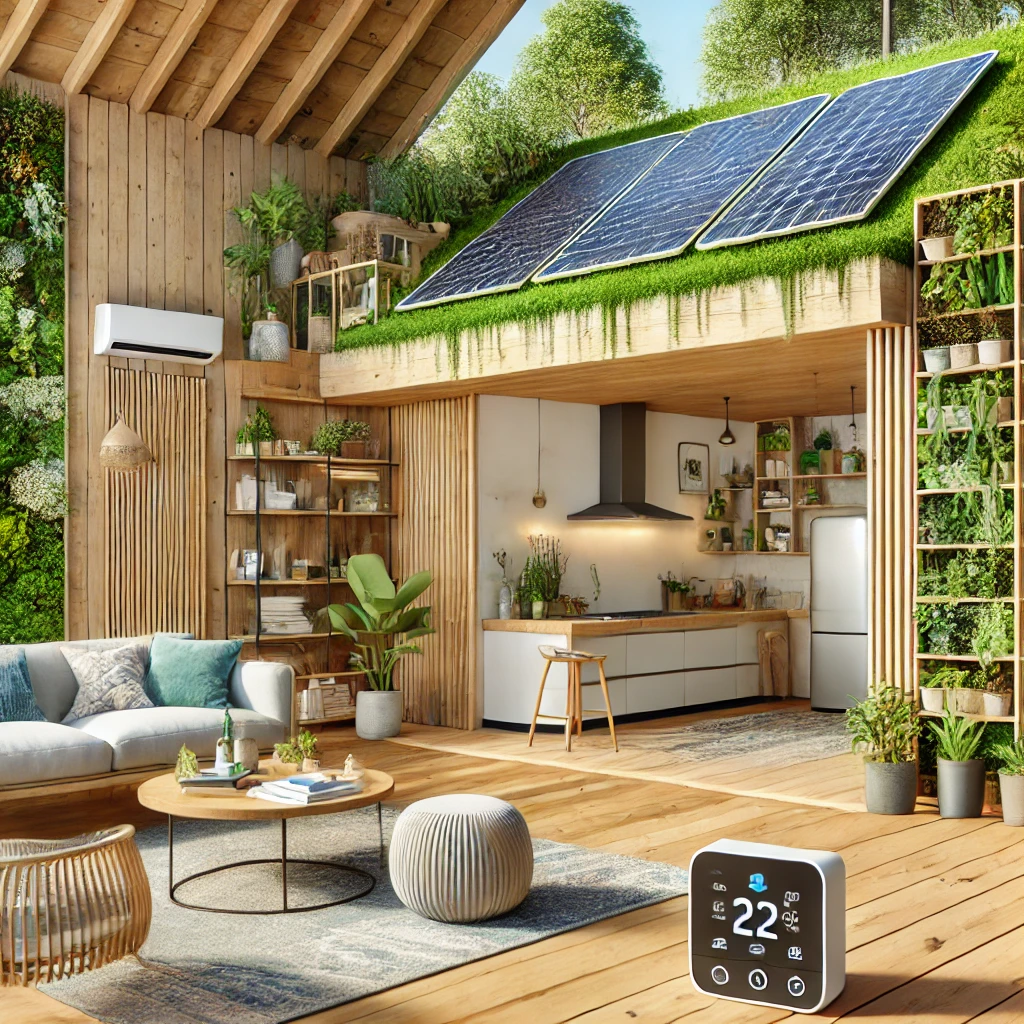Introduction: The Importance of Eco-Friendly Home Renovation

In today’s world, environmental sustainability is no longer just a trend—it’s a necessity. Eco-friendly home renovation not only reduces your carbon footprint but also creates a healthier living environment while lowering energy costs. Whether you’re looking to make small changes or undertake major renovations, focusing on sustainability can significantly impact both your home and the planet.
1. Sustainable Material Choices
Using sustainable materials is key to eco-friendly renovations. Bamboo and reclaimed wood are great alternatives to traditional construction materials because they are renewable and reduce the need for new resource extraction.
- Bamboo: Bamboo is fast-growing and highly renewable, making it an excellent choice for flooring and furniture.
- Reclaimed wood: Salvaged wood provides a rustic aesthetic while giving new life to materials that would otherwise be discarded.
2. Improving Energy Efficiency
Energy efficiency is a crucial aspect of eco-friendly home renovation. By installing smart thermostats and energy-efficient appliances, you can reduce your home’s energy consumption and lower utility bills.
- Smart thermostats: These devices allow for precise temperature control, helping you avoid unnecessary heating or cooling when no one is home.
- Energy-efficient appliances: Look for appliances with an Energy Star rating. These consume less electricity and water, minimizing your environmental impact while saving money.
3. Harnessing Solar Power
Solar panels offer a sustainable way to power your home. By installing a solar photovoltaic system, you can reduce your reliance on fossil fuels and significantly lower your carbon footprint.
- Solar energy benefits: Solar energy is clean, renewable, and reduces energy costs over time. Depending on your location, you may also qualify for government incentives and tax rebates.
- Long-term investment: Though the upfront cost can be high, solar panels are a long-term investment that pays for itself through reduced electricity bills and added home value.
4. Green Roofs and Vertical Gardens
Incorporating a green roof or vertical garden can enhance your home’s sustainability while improving air quality and insulation.
- Green roofs: These involve growing plants on your roof, helping to regulate indoor temperature, reduce stormwater runoff, and provide extra insulation.
- Vertical gardens: Installing green walls or vertical gardens can improve air quality inside and outside your home, reduce noise pollution, and add aesthetic value.
Conclusion: Enhancing Sustainability through Eco-Friendly Renovations
By incorporating sustainable materials, improving energy efficiency, installing solar panels, and utilizing green spaces like roofs and walls, eco-friendly home renovations can drastically reduce your environmental footprint. These changes not only benefit the planet but also create a healthier and more cost-effective living space.